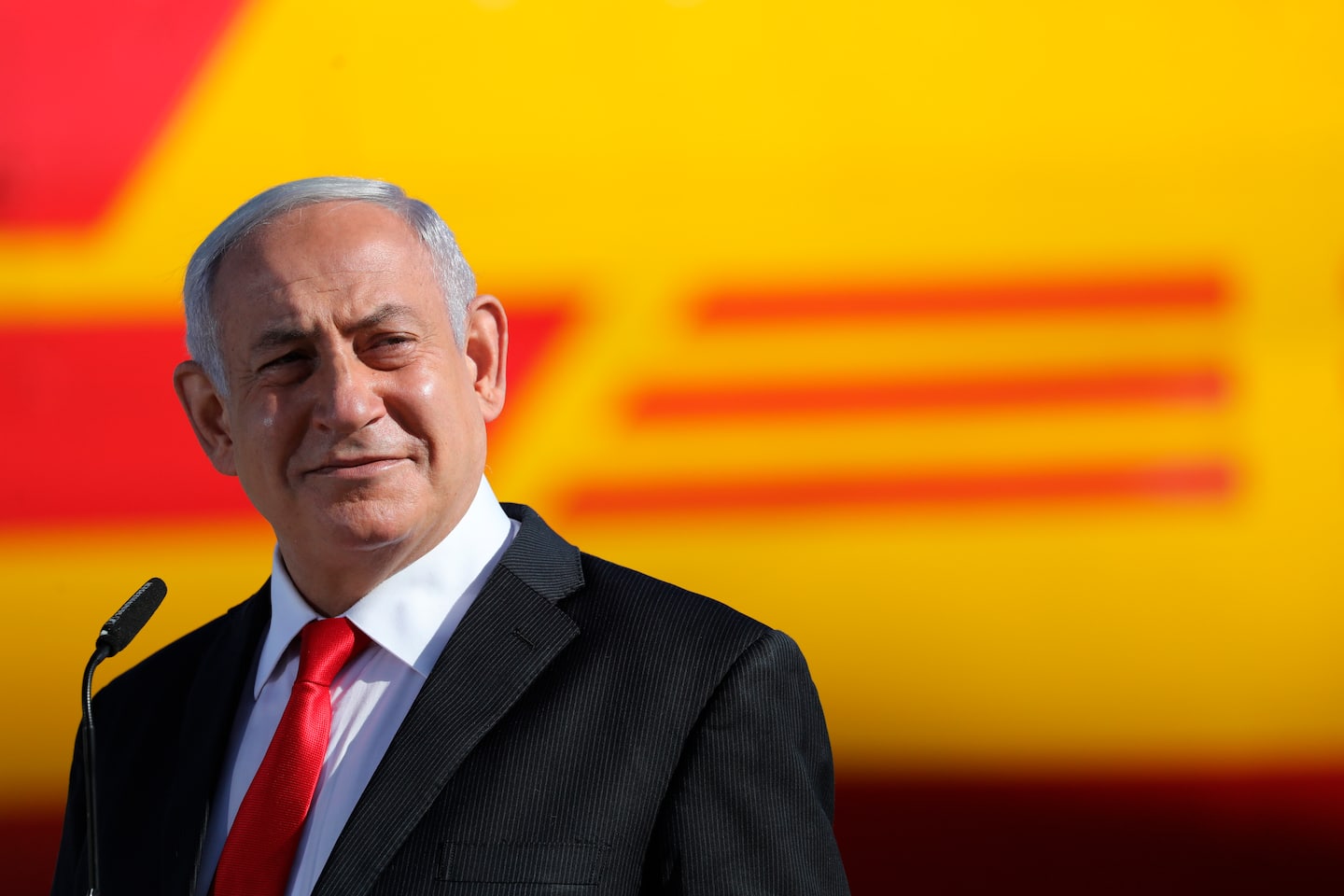Who should get a vaccine first — the pensioner or the politician?

But in Israel, where the first doses of the same vaccine arrived via plane Wednesday, it appears the first person to receive a shot may be 71-year-old Benjamin Netanyahu — the country’s prime minister. “I would like to serve as a personal example,” Netanyahu explained as he greeted the vaccine shipment at the airport.
It’s not just two decades that separate Keenan and Netanyahu, though that alone would put the British patient zero in an altogether different risk category than her Israeli counterpart. Netanyahu is arguably Israel’s most famous man. He is the country’s longest-serving prime minister and enjoys a privileged, wealthy lifestyle.
Keenan, meanwhile, was not a public figure until Tuesday. Before retiring, she had worked as an assistant in a jewelry store. She was vulnerable, rather than venerable. The gulf between their circumstances was a reminder of the inequities that vaccine distribution may bring.
With vaccines likely to remain in short supply for some time, how they get distributed is a pressing debate. Some argue that preventing deaths should be the priority, in which case jabs would go to those most at risk, including the elderly like Keenan, first. Others contend it is better to focus on the virus’s spread, meaning a practice of vaccinating those most exposed: front-line workers as varied as doctors and delivery people.
But there are worries about how the wealthy and powerful will fit in. Armand Arton, founder of Arton Capital, a citizenship consulting firm that works with high-net-worth individuals, said some might go to extreme lengths to get a vaccine if it improved their quality of life.
“There is a black market for pretty much every industry,” he told Today’s WorldView.
Netanyahu’s pledge to get vaccinated isn’t simply a case of skipping the line, however. Arthur Caplan, a professor of bioethics at New York University Langone Medical Center and the founding director of the Division of Medical Ethics, said he thought Netanyahu getting the vaccine first in Israel was not just ethically acceptable but actually desirable.
Caplan argued that any world leader who is Netanyahu’s age or in a similar risk group for other health reasons should publicly follow the Israeli’s lead. “They should say, ‘I’m 71, that’s why I am getting it, not because I’m a politician,’ ” Caplan said. “I’d like to see people from across the political spectrum get it.”
For all the concerns of equity in vaccine distribution, there are also grave worries about vaccine hesitancy. Although the virus has killed 1.5 million people globally, anti-vaccination movements have exploited social media and public anxiety to spread fears about vaccines.
There are those who believe mass vaccinations are a plot hatched by Bill Gates to install microchips in our blood. And then there are many others who are simply hesitant to take a new vaccine they don’t understand. This week, a poll from the Associated Press-NORC Center for Public Affairs Research found only half of Americans said they would get a vaccine; a quarter said they would not get it at all.
Short-term side effects, though widely expected among the medical community, could alarm some people. Caplan noted that on Wednesday, the British government ordered hospitals not to give the vaccine shots to those who tend to have “significant” allergic reactions.
Netanyahu’s pledge drew a mixed reaction in Israel. But some medical experts argued it was a positive step in a nation that has its own history of vaccine hesitancy. “Skepticism is going to be an issue because the development was so rapid,” Hagai Levine, a professor of epidemiology at Hebrew University-Hadassah, told my colleagues.
The Israeli prime minister will not be the first world leader to take a coronavirus vaccine. Last month, Dubai ruler Mohammed bin Rashid al-Maktoum, also 71, was photographed receiving a vaccine made by China. Others are not so sure: Russian President Vladimir Putin has not yet had a Kremlin-backed vaccine, though his daughter has.
In the United States, President-elect Joe Biden said last week he would publicly take a vaccine, joining a pledge by former presidents Bill Clinton, George W. Bush and Barack Obama. The group said they would not skip their place to get the vaccine, though all except Obama are in their 70s and likely to be a priority (Obama is 59).
Caplan said that while these efforts were welcome, he worried that politicians could be divisive figures and that rivals — President Trump, for one, in the United States — may push back against the effort. He said a broad range of celebrities and social media influencers should be tapped to get the vaccine too as part of an effort to reach as many people as possible.
“Pick a date, maybe in January, and make it national vaccination day,” Caplan said. “Let’s talk seriously about the status of our vaccines and what we’ve learned from giving them out for four weeks, five weeks, and get rid of the rumors and false claims.”
The idea is not radical: Elvis Presley played his own part in the vaccine drive against polio in 1956. Finding modern celebrities and influencers to take a vaccine may not be hard, but finding one who wouldn’t be skipping their place in line is more complicated: In Britain, 94-year-old naturalist David Attenborough and 86-year-old actor Judi Dench have been suggested.
But authorities in Israel and elsewhere perhaps should not overlook the power of regular people. Yes, conspiracy theorists have said, among other things, that Keenan was a “crisis actor.” But generally, the reaction has been overwhelmingly positive. After 91-year-old Briton Martin Kenyon was interviewed by CNN upon getting his first dose Tuesday, the footage went viral.
Reached by the Guardian the next day, Kenyon was amused by his newfound fame but happy to offer more reassurance. “We all want to get back to normal,” he said, “and I am sure that will happen.”
Read more:






